World Teachers’ Day: Sudan’s educators surviving rather than thriving
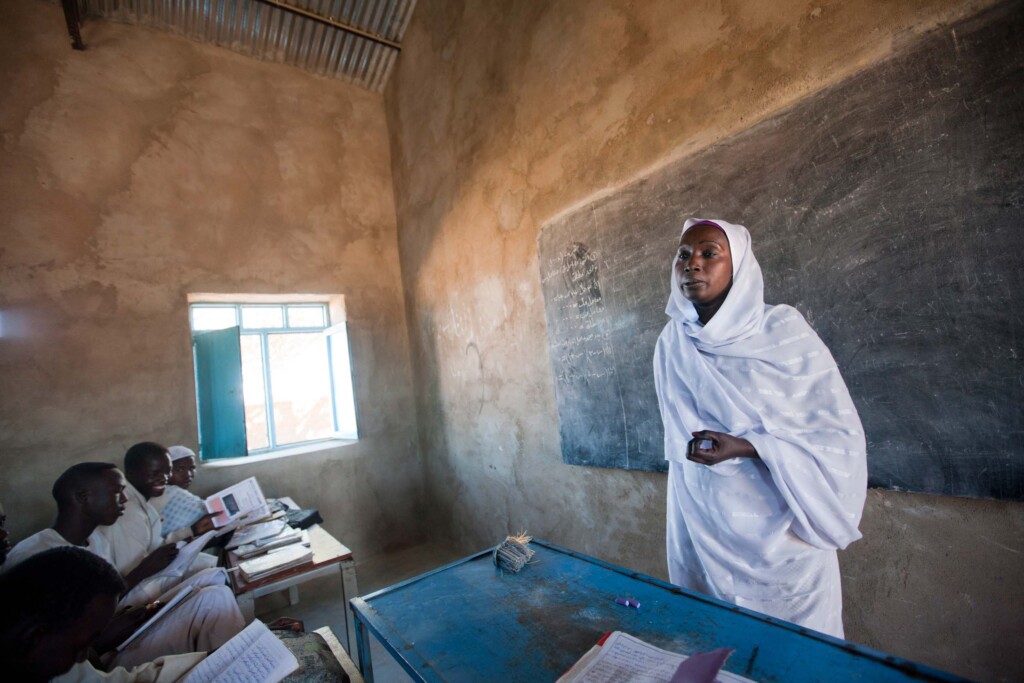
A teacher at Nuru Salam Basic School for Boys in Kabkabiya, North Darfur in 2012, that employed 23 teachers accommodated 2,700 students, mostly from camps for internally displaced people (Archive photo: Albert González Farran / UNAMID)
By Iman Ibrahim
Since the current conflict in Sudan erupted in April 2023, the bells have stopped ringing in Sudan’s schools, and classrooms have fallen silent without the voices of children. Once filled with lessons and laughter. Many educational facilities have been looted, destroyed, or turned into shelters, erasing the rhythm of learning.
Today, on World Teachers’ Day 2025*, held under the theme Collaboration is key to making teachers thrive, Sudan’s teachers continue to fight for the essentials they have long been denied. UNESCO calls for stronger partnerships among teachers, unions, and governments to rebuild education systems, yet in Sudan, collaboration has become less about professional growth, and more about survival.
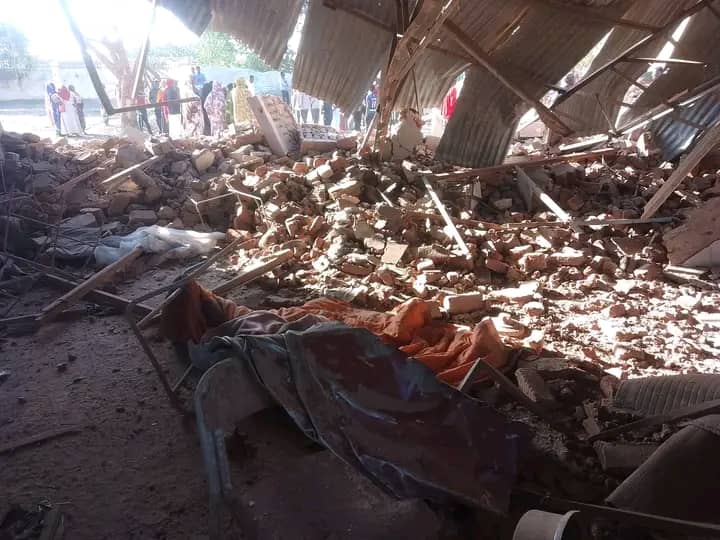
(File photo: RD)
The war has crushed what remained of normal school life. Children wander through displacement camps carrying memories of classrooms that no longer exist, while teachers struggle for the basics, salaries, security, and respect, in a country where education itself is under siege. Their futures are now tied together, the absence of one, silence the other.
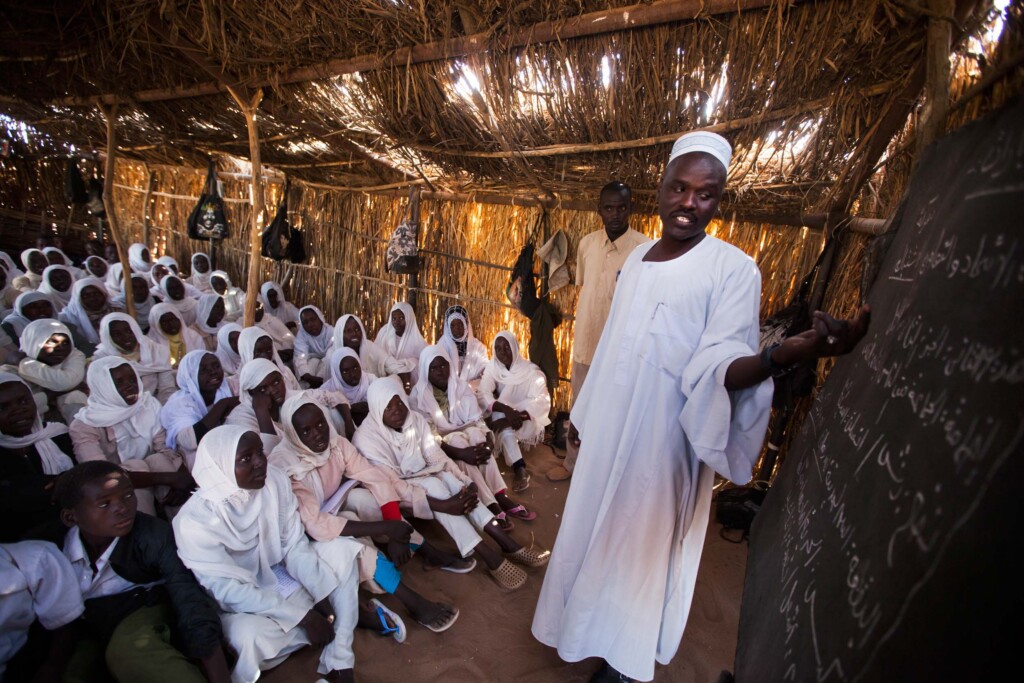
History of teachers’ struggles in Sudan
Sudan’s teachers have long carried the burden of a broken system, their struggle stretching back years before the current war. Under the Omar Al Bashir dictatorship, education was among the first institutions to show the cracks of neglect. In September 2014, secondary school teachers in El Fasher, North Darfur, went on strike over unpaid bonuses and salary arrears, exposing a pattern of late payments that would later define the profession. A year later, in July 2015, teachers in Nyala, South Darfur, launched an open-ended strike after armed groups entered schools and threatened staff, showing that classrooms were no longer safe spaces.
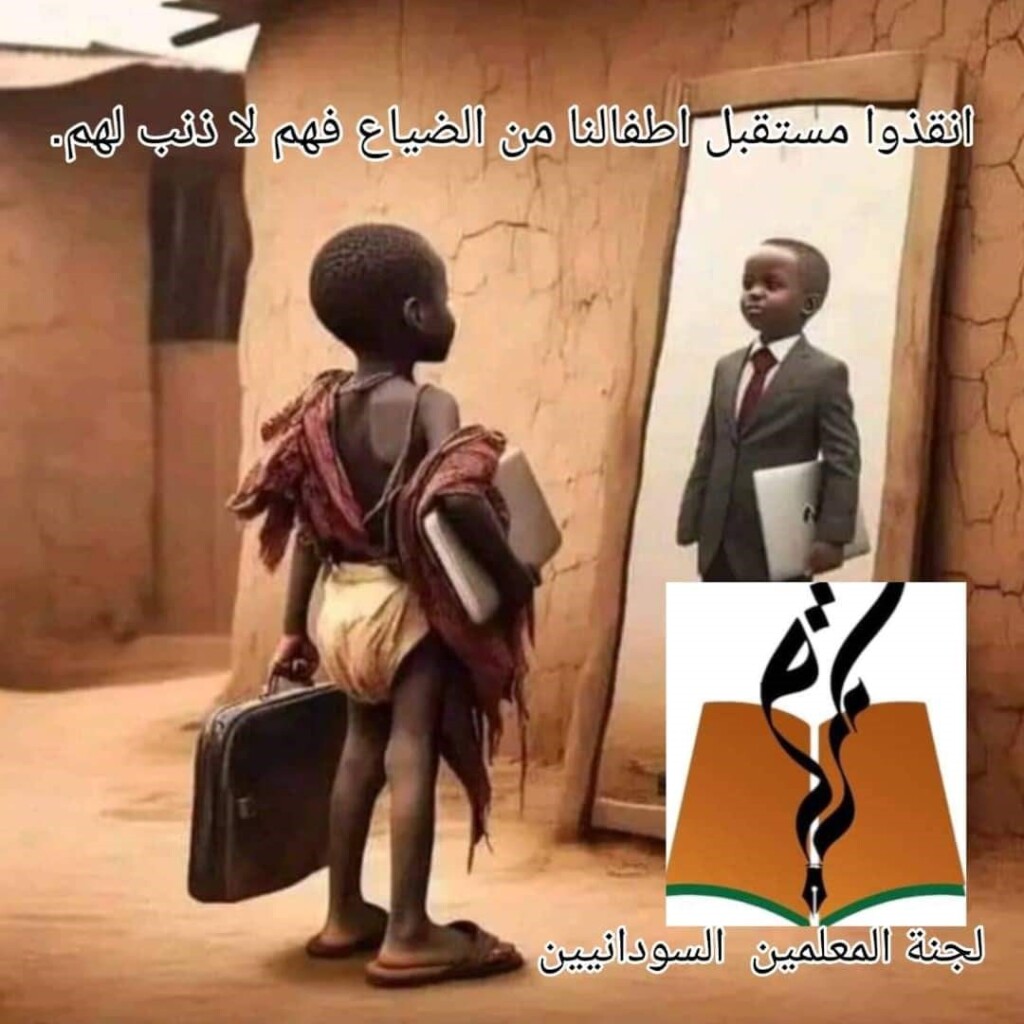
By May 2018, the crisis had reached Khartoum, where unpaid teachers staged a sit-in at the Ministry of Education after months without salaries. Their demands went unanswered. In February 2019, the killing of Ahmed El Kheir, a teacher from Kassala, while in detention during the anti-regime protests, became a national symbol of repression and resistance within Sudan’s teaching community.
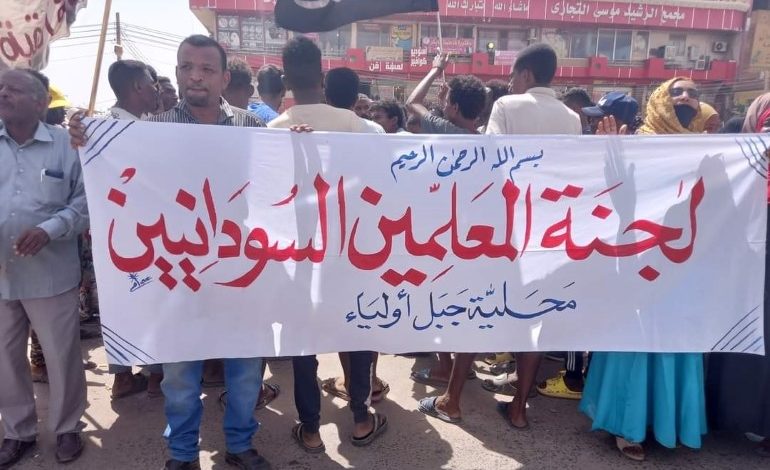
(Source: Sudan Teachers Committee)
During the brief civilian transition between 2020 and early 2023, teachers across Sudan continued to strike over delayed pay and unfulfilled promises of a new salary structure. In April 2022 teachers in South Darfur and Sennar demanded implementation of the new salary structure and adjustments for 2020–2021. Strikes continued through June 2022 and September 2022 as authorities failed to implement the reforms. By February 2023, the Teachers’ Committee in Khartoum described renewed government assurances to pay salaries as “political fraud,” reflecting years of frustration and unkept commitments. By December 2022, the strikes had widened into a national movement that shut down schools in several states as staff demanded overdue wages and allowances.
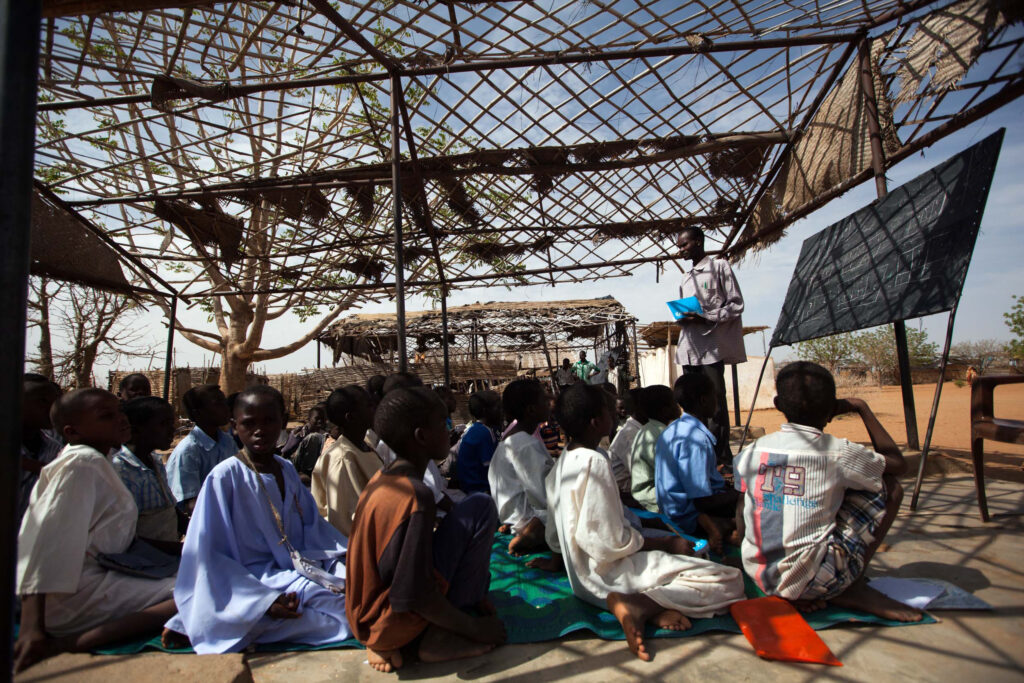
When the current war erupted in April 2023, these unresolved grievances collided with humanitarian collapse. Schools across the country closed, many destroyed or turned into shelters.
By February 2024, teachers in South Darfur declared it ‘impossible to reopen’ schools amid displacement, insecurity, and non-payment of salaries. Teachers who remained in service described working without pay or safety, as education itself teetered on the brink of extinction. Despite the devastation, educators continued to act. In April 2024, the Sudanese Teachers’ Committee called for a coordinated, safe resumption of education, while others joined journalists in campaigns to stop the war, turning their profession into a platform for civic resistance. By October 2024, teachers condemned the Ministry of Education’s plan to hold national exams only in “safe” areas, calling it “political and discriminatory.”
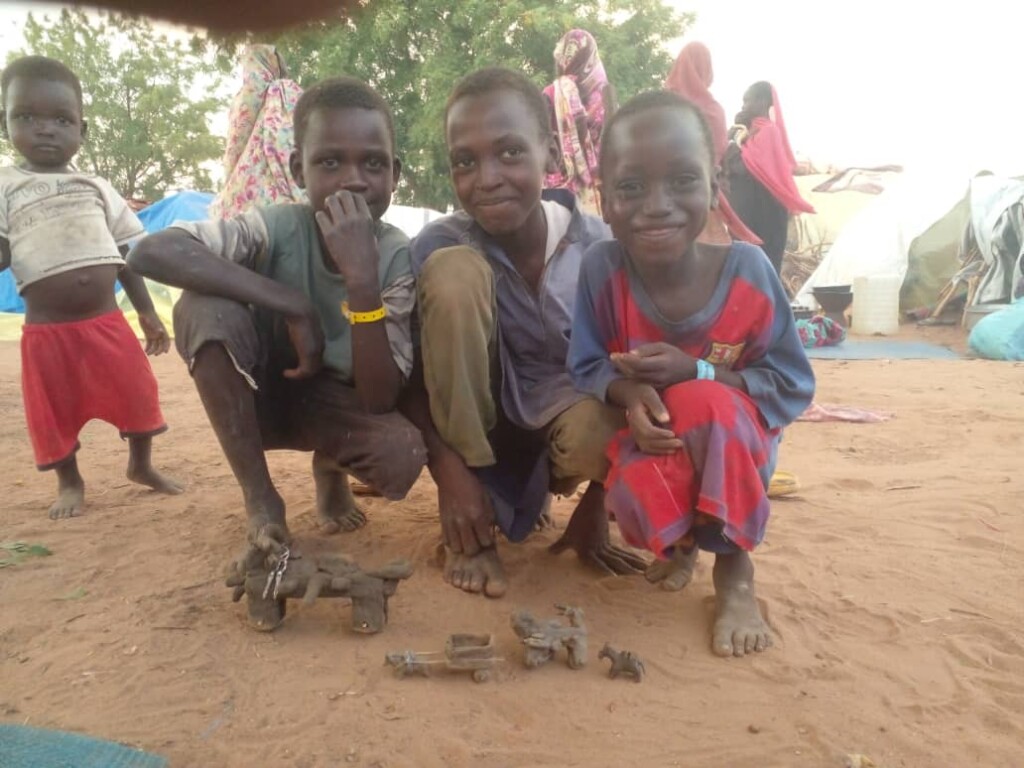
(File photo: Bashir Adam / Radio Dabanga)
By June 2025, the profession had reached breaking point. The Sudanese Teachers’ Committee in Khartoumrejected government orders to reopen schools, stating that teachers had been unpaid for over a year and schools remained unsafe for both staff and students.
Sudan’s education crisis is far from new. Teachers have faced years of unpaid labour, strikes, and intimidation, challenges that long predated the current war and have only deepened since it began.
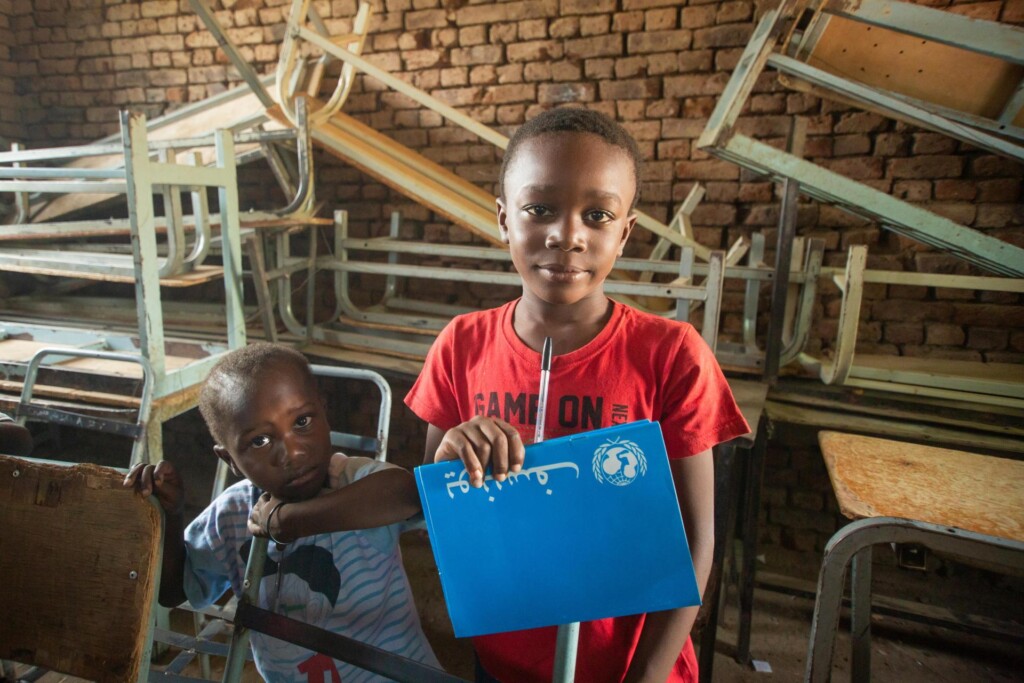
What is the future of teaching in Sudan?
In Sudan, collaboration has become less about policy and more about endurance. While global discussions led by UNESCO and its partners this year emphasise partnership and shared progress, teachers in Sudan continue to hold the line amid insecurity, unpaid labour, and displacement.
Yet beyond this endurance lies a question of global responsibility. UNESCO’s ongoing efforts to strengthen teacher collaboration worldwide underline that thriving education systems depend on professional unity and institutional respect. Still, in Sudan, that vision remains distant. The Education Cannot Waitglobal fund highlights through its Teachers Cannot Wait campaign that teachers in crisis zones must be supported urgently with training, safety, and salaries to keep classrooms alive.
Real collaboration in Sudan will mean more than declarations. It requires tangible protection, fair pay, and recognition of teachers as the pillars of recovery.
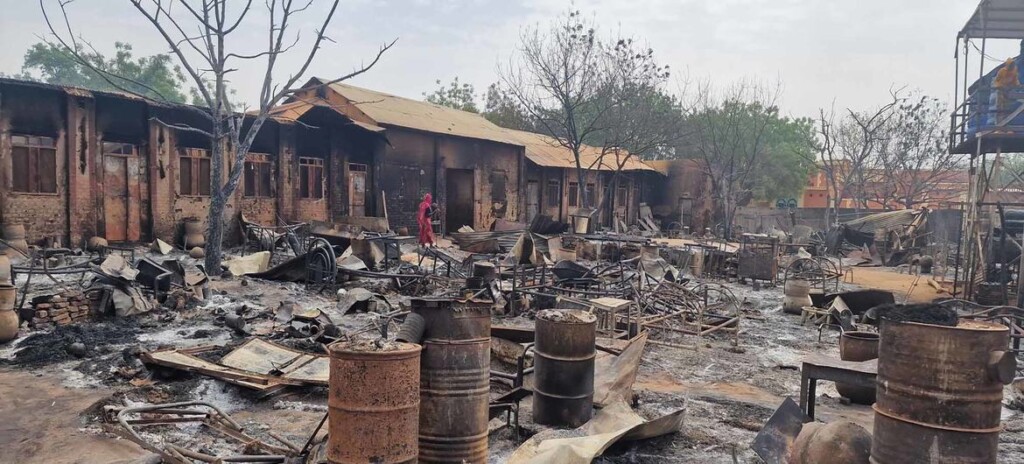
(Archive photo: Mohamed Khalil UNHCR)
* Each year, UNESCO leads the global celebration of #WorldTeachersDay in partnership with the International Labour Organization (ILO), UNICEF, and Education International (EI). The #WorldTeachersDay2025 theme, Collaboration is key to making teachers thrive, reaffirms UNESCO’s mission to strengthen the teaching profession through cooperation, shared leadership, and mutual respect.
For UNICEF, the day underscores the protection of children’s right to learn by ensuring that teachers are supported, safe, and paid. Together, these organisations frame a global vision where empowered teachers and protected children form the foundation of recovery and hope.
See: Recasting teaching as a collaborative profession: World Teachers’ Day 2025; fact sheet







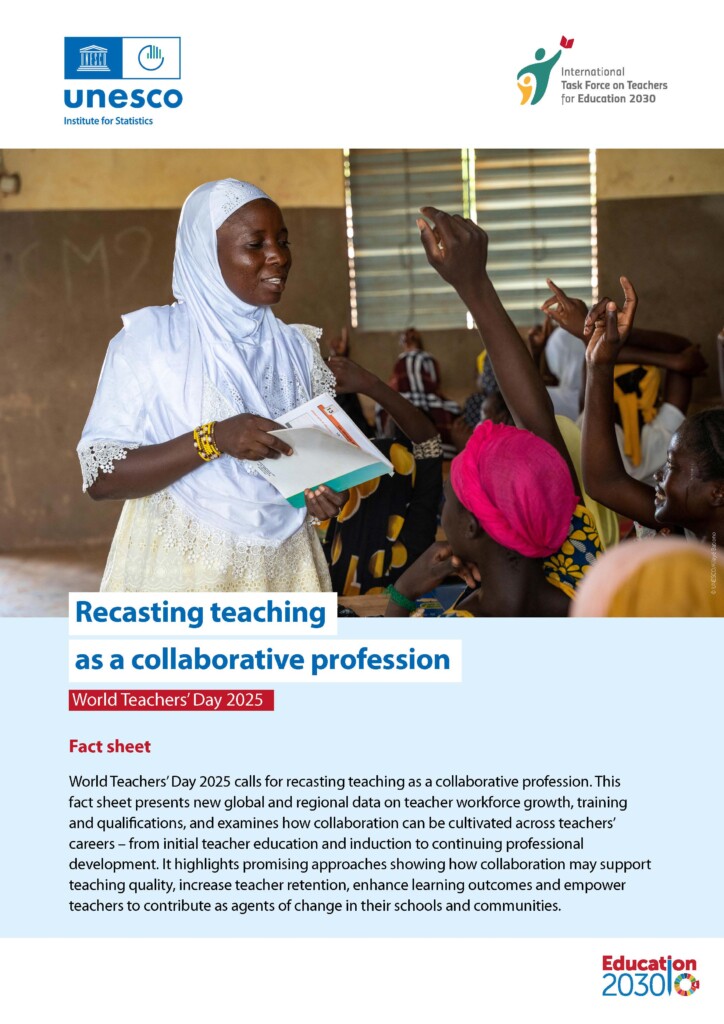




 and then
and then